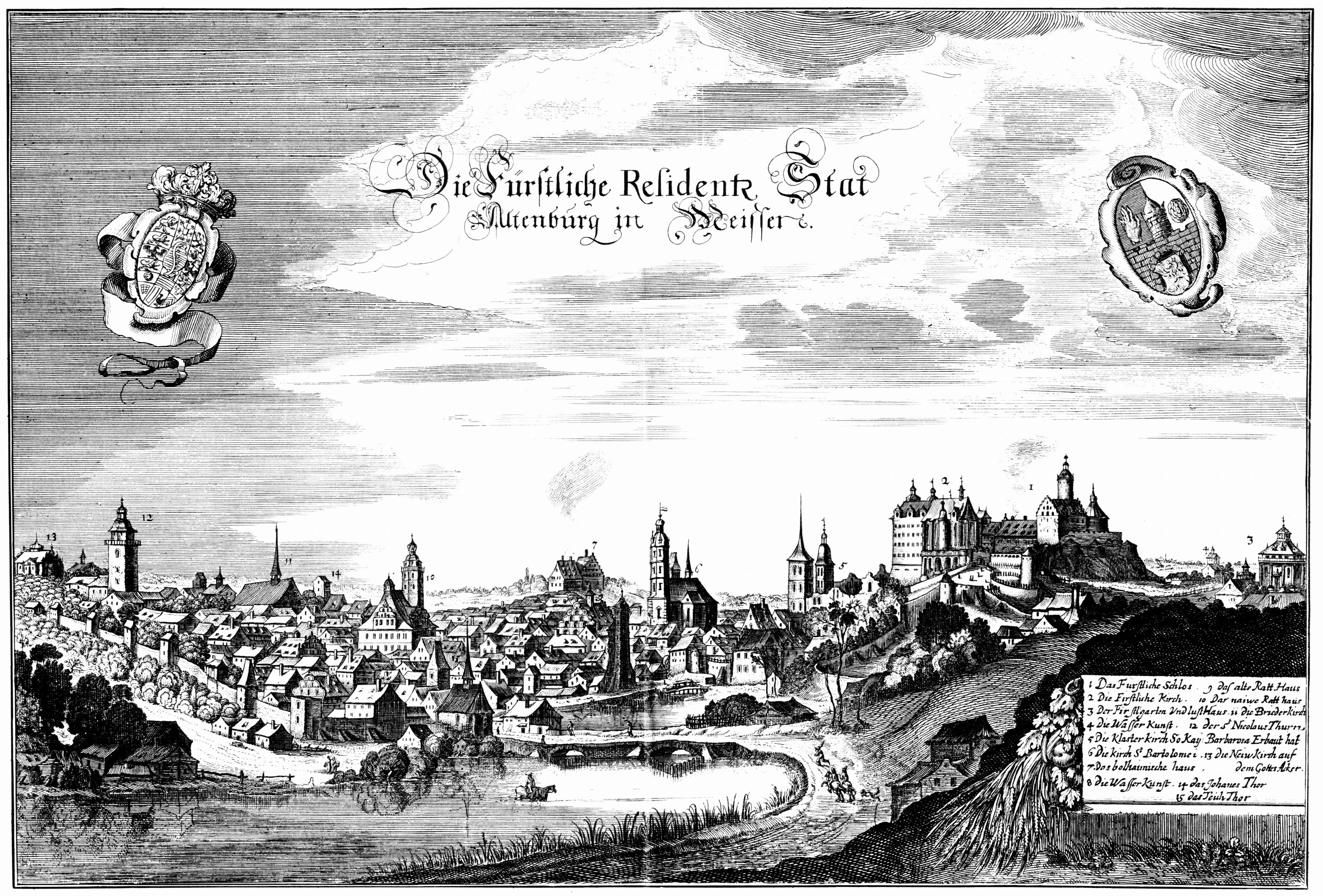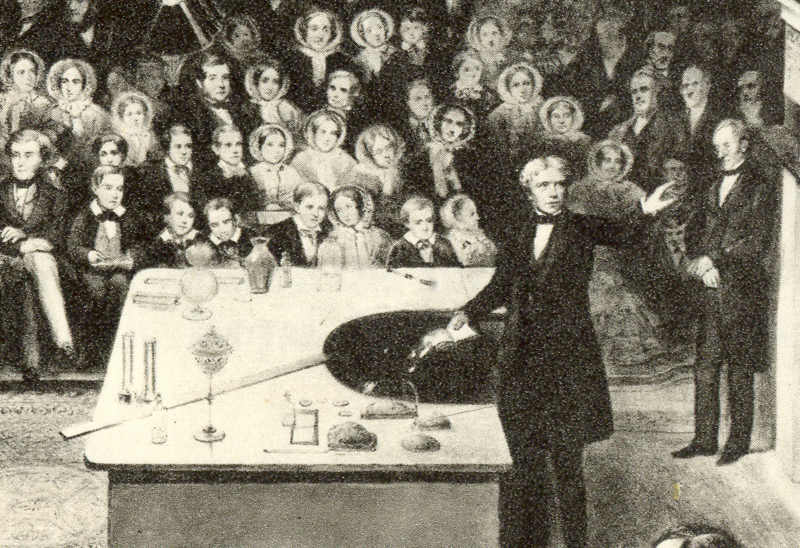|
Elise Von Hopffgarten
Elise Hermine von Hopffgarten, née Hennoch (January 29, 1869 in Altenburg-after 1937) was a German author and founder of the Deutschen Pfadfinderbundes für junge Mädchen. On January 14, 1912, the Deutschen Pfadfinderbundes für junge Mädchen was founded at the instigation of Maximilian Bayer, in which several Scout groups existent since 1908, some of which previously were attached to the Wandervogel, merged. Hopffgarten was elected by the Assembly in the Pestalozzi-Fröbel-Haus to be the first chairman and held that position until 1922. In this role, she was editor of the club magazine and made numerous lecture tours around Germany, to promote Scouting. By mid-1914, the organization had 6,200 members. In 1915 the organization launched the ''Kriegsgarten'' " war gardens", in which children were taught horticulture and were fed. In February 1912, Bayer, Alexander Lion, and Carl Freiherr von Seckendorff assisted Elise von Hopffgarten in authoring "Pfadfinderbuch für junge M� ... [...More Info...] [...Related Items...] OR: [Wikipedia] [Google] [Baidu] |
:Template:Infobox Writer/doc
Infobox writer may be used to summarize information about a person who is a writer/author (includes screenwriters). If the writer-specific fields here are not needed, consider using the more general ; other infoboxes there can be found in :People and person infobox templates. This template may also be used as a module (or sub-template) of ; see WikiProject Infoboxes/embed for guidance on such usage. Syntax The infobox may be added by pasting the template as shown below into an article. All fields are optional. Any unused parameter names can be left blank or omitted. Parameters Please remove any parameters from an article's infobox that are unlikely to be used. All parameters are optional. Unless otherwise specified, if a parameter has multiple values, they should be comma-separated using the template: : which produces: : , language= If any of the individual values contain commas already, add to use semi-colons as separators: : which produces: : , ps ... [...More Info...] [...Related Items...] OR: [Wikipedia] [Google] [Baidu] |
Altenburg
Altenburg () is a city in Thuringia, Germany, located south of Leipzig, west of Dresden and east of Erfurt. It is the capital of the Altenburger Land district and part of a polycentric old-industrial textile and metal production region between Gera, Zwickau and Chemnitz with more than 1 million inhabitants, while the city itself has a population of 33,000. Today, the city and its rural county is part of the Central German Metropolitan Region. Altenburg was first mentioned in 976 and later became one of the first German cities within former Slavic area, east of the Saale river (as part of the medieval Ostsiedlung movement). The emperor Frederick Barbarossa visited Altenburg several times between 1165 and 1188, hence the town is named a Barbarossa town today. Since the 17th century, Altenburg was the residence of different Ernestine duchies, of whom the Saxe-Altenburg persisted until the end of monarchy in Germany in 1918. Industrialization reached Altenburg and the ... [...More Info...] [...Related Items...] OR: [Wikipedia] [Google] [Baidu] |
Maximilian Bayer
Maximilian Bayer (11 May 1872 in Karlsruhe – 25 October 1917 in Nomeny) was the founder of Scouting in Germany, along with Alexander Lion. During World War I, he built the 27th Royal Prussian Jäger Battalion, later the core of the Finnish Army. Life Bayer was the first of two children born to Major General Stephan Bayer (1816–1893) and his second wife, Julie Henoch (1839–1888). During his early life the family moved often between Italy and Germany, living in Pisa, Florence, Bagni di Lucca, Viareggio, Baden-Baden and Gotha. While living in Baden-Baden, the nine-year-old Bayer suffered from a severe case of diphtheria of the eye. The family moved to Italy again between 1883 and 1886, and it was during this time living in Capri and Venice that he became familiar with Italian language and culture. In 1887, at the age of 14, he continued his family's military tradition by enrolling as a cadet in a Berlin military academy. His mother died the next year. Bayer gr ... [...More Info...] [...Related Items...] OR: [Wikipedia] [Google] [Baidu] |
Wandervogel
''Wandervogel'' (plural: ''Wandervögel''; English: "Wandering Bird") is the name adopted by a popular movement of German youth groups from 1896 to 1933, who protested against industrialization by going to hike in the country and commune with nature in the woods. Drawing influence from medieval wandering scholars, their ethos was to revive old Teutonic values, with a strong emphasis on German nationalism. According to historians, a major contribution of the ''Wandervögel'' was the revival of folk songs in wider German society. The movement was divided into three main national groups: the ''Alt-Wandervogel'', the ''Wandervogel eingetragener Verein'' (WVEV) and the ''Jung-Wandervogel''. While the two first ones were generally respectful of traditions (family, the military, the school), the ''Jung-Wandervogel'' was more defiant and closer to revolutionary ideas. Contrary to scouting organizations, Wandervögel had spontaneously emerged outside of authority controls, and recruited ... [...More Info...] [...Related Items...] OR: [Wikipedia] [Google] [Baidu] |
Lecture Tour
A public lecture (also known as an open lecture) is one means employed for educating the public in the arts and sciences. The Royal Institution has a long history of public lectures and demonstrations given by prominent experts in the field. In the 19th century, the popularity of the public lectures given by Sir Humphry Davy at the Royal Institution was so great that the volume of carriage traffic in Albemarle Street caused it to become the first one-way street in London. The Royal Institution's Christmas Lectures for young people are nowadays also shown on television. Alexander von Humboldt delivered a series of public lectures at the University of Berlin in the winter of 1827–1828, that formed the basis for his later work ''Kosmos''. Besides public lectures, public autopsies have been important in promoting knowledge of medicine. The public autopsy of Dr. Johann Gaspar Spurzheim, advocate of phrenology, was conducted after his death, and his brain, skull, and heart were remov ... [...More Info...] [...Related Items...] OR: [Wikipedia] [Google] [Baidu] |
Germany
Germany, officially the Federal Republic of Germany (FRG),, is a country in Central Europe. It is the most populous member state of the European Union. Germany lies between the Baltic and North Sea to the north and the Alps to the south. Its 16 constituent states have a total population of over 84 million in an area of . It borders Denmark to the north, Poland and Czechia to the east, Austria and Switzerland to the south, and France, Luxembourg, Belgium, and the Netherlands to the west. The nation's capital and most populous city is Berlin and its main financial centre is Frankfurt; the largest urban area is the Ruhr. Settlement in what is now Germany began in the Lower Paleolithic, with various tribes inhabiting it from the Neolithic onward, chiefly the Celts. Various Germanic tribes have inhabited the northern parts of modern Germany since classical antiquity. A region named Germania was documented before AD 100. In 962, the Kingdom of Germany formed the ... [...More Info...] [...Related Items...] OR: [Wikipedia] [Google] [Baidu] |
Scouting
Scouting, also known as the Scout Movement, is a worldwide youth Social movement, movement employing the Scout method, a program of informal education with an emphasis on practical outdoor activities, including camping, woodcraft, aquatics, hiking, Backpacking (wilderness), backpacking, and sports. Another widely recognized movement characteristic is the Scout uniform, by intent hiding all differences of social standing in a country and encouraging equality, with neckerchief and campaign hat or comparable headwear. Distinctive uniform insignia include the fleur-de-lis and the trefoil, as well as Scout badge, merit badges and other patches. In 1907, Robert Baden-Powell, 1st Baron Baden-Powell, Robert Baden-Powell, a Lieutenant General in the British Army, held a Brownsea Island Scout camp, Scouting encampment on Brownsea Island in England. Baden-Powell wrote ''Scouting for Boys'' (London, 1908), partly based on his earlier military books. The Scout Movement of both Boy Scouts and ... [...More Info...] [...Related Items...] OR: [Wikipedia] [Google] [Baidu] |
War Garden
Victory gardens, also called war gardens or food gardens for defense, were vegetable, fruit, and herb gardens planted at private residences and public parks in the United States, United Kingdom, Canada, Australia and Germany during World War I and World War II. In wartime, governments encouraged people to plant victory gardens not only to supplement their rations but also to boost morale. They were used along with rationing stamps and cards to reduce pressure on the food supply. Besides indirectly aiding the war effort, these gardens were also considered a civil "morale booster" in that gardeners could feel empowered by their contribution of labor and rewarded by the produce grown. This made victory gardens a part of daily life on the home front. World War I Canada Victory Gardens became popular in Canada in 1917. Under the Ministry of Agriculture's campaign, "A Vegetable Garden for Every Home", residents of cities, towns and villages utilized backyard spaces to plant vege ... [...More Info...] [...Related Items...] OR: [Wikipedia] [Google] [Baidu] |
Carl Freiherr Von Seckendorff
Prussian general of division Carl Freiherr von Seckendorff was one of the founders of Scouting in Germany, along with Maximilian Bayer and Elise von Hopffgarten. He was the first "Reichsfeldmeister" (''fieldleader of the realm'') of the Deutscher Pfadfinderbund after World War I. In February 1912, Bayer, von Seckendorff, Elise von Hopffgarten, and Alexander Lion authored "Pfadfinderbuch für junge Mädchen" (A Scout Book for Girls). In its effort to make young women more independent, it was free from patriotic or religious sentiment, and contained references to the women's movement. Family Seckendorff was born into the Seckendorff family, an old noble family of Franconia. He had three daughters: Marianne, Ilse and Erika. After World War I With the end of World War I, the Scouting movement in Germany strove to reintroduce a general structure, and reorganized the Pfadfinderbund in 1918. The first years of the newly formed Bund were marked by a recurring conflict about th ... [...More Info...] [...Related Items...] OR: [Wikipedia] [Google] [Baidu] |




.jpg)